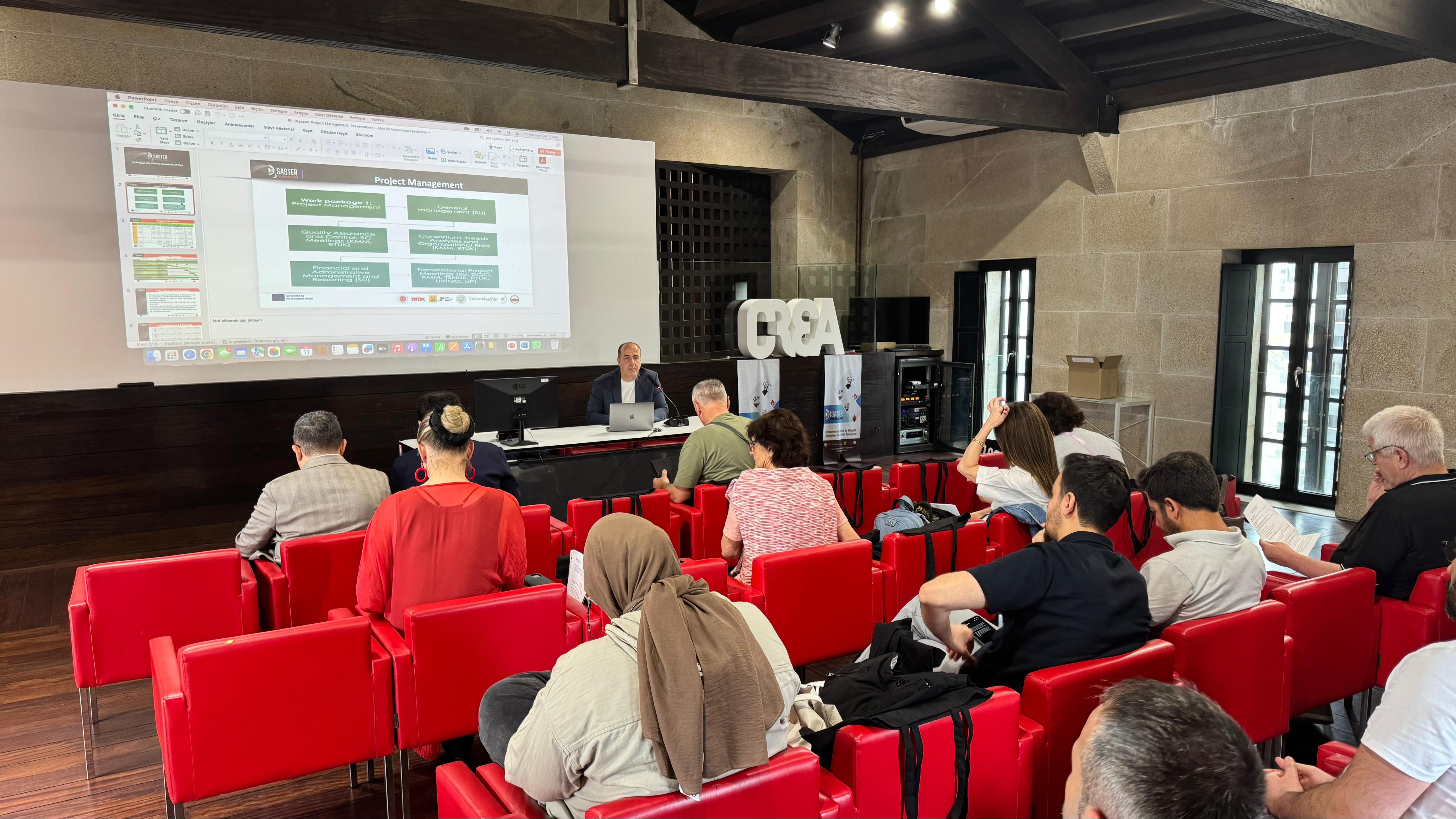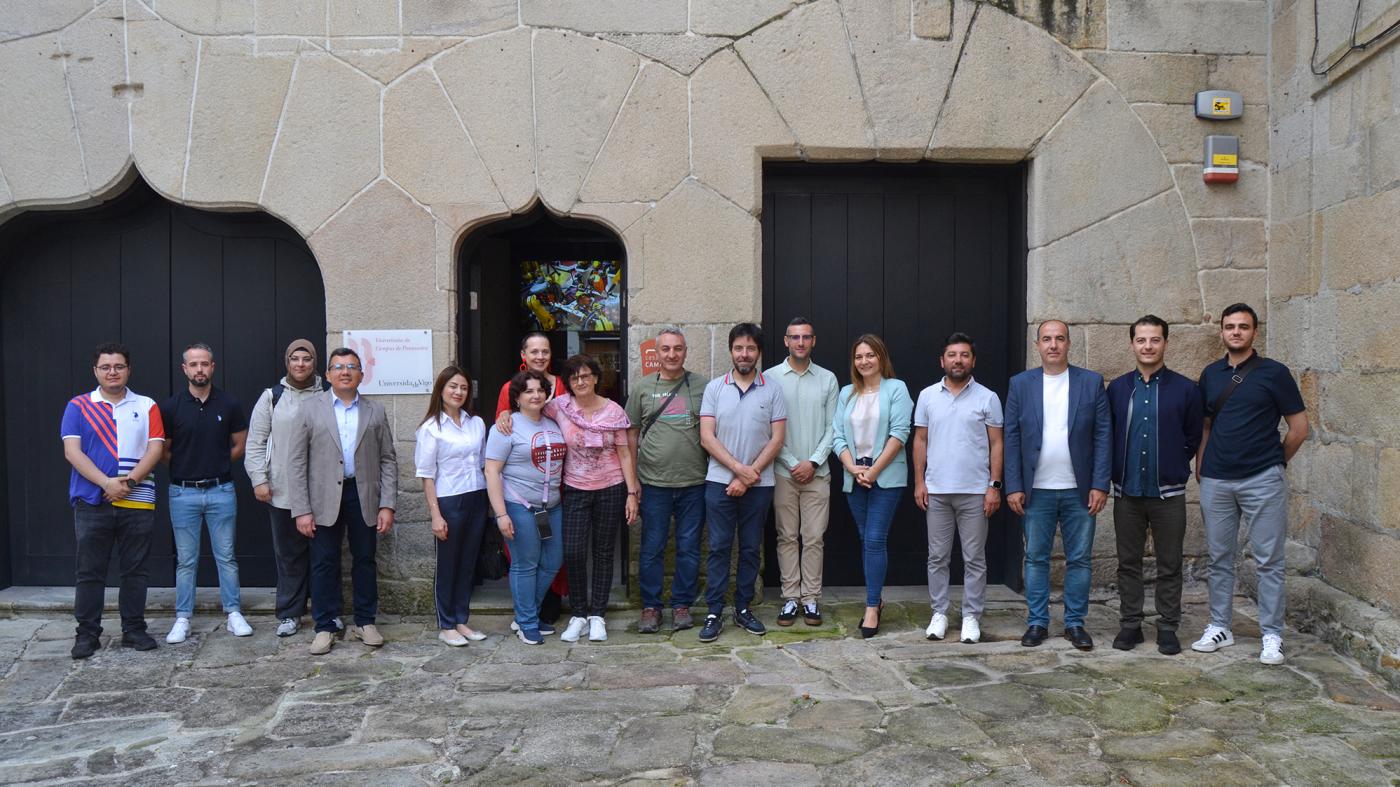

Experts from Four Countries Evaluate on Campus How to Improve Disaster Journalism Coverage
Their Goal Is to Design Training Resources for Professionals
Funded by the Erasmus+ program, the 'New(s) Disaster' project aims to improve journalistic coverage of disasters such as earthquakes, fires, or floods by creating a series of training resources aimed at professionals. Coordinated by Selçuk University in Turkey, the project includes researchers from the Faculty of Communication and the School of Telecommunication Engineering at the University of Vigo, which is hosting the third transnational meeting of the project this Wednesday and Thursday. This meeting brings together around twenty researchers from Turkey, Slovenia, Ukraine, and Spain on the Pontevedra campus.
“In a context where disasters have almost become part of daily life, the activities of qualified disaster journalists have become vital to reducing their negative effects on societies,” highlight the project leaders. The initiative is funded with nearly 250,000 euros under the Erasmus+ program’s call for cooperation partnerships in higher education. With the aim of focusing on the role journalism can play in both prevention and “disaster recovery,” the Disaster Journalism: Preventing the News from Turning into a Disaster project centers on designing activities and training resources for both students in the field and professionals.
The principal researcher of the project at UVigo, Professor Javier Abuín from the Faculty of Communication, emphasizes that while the “primary objective is for professionals to be better trained and equipped with more tools to cover disasters,” this is also an initiative that seeks to be “useful to society” and contribute to the creation of “less sensationalist” information content, arising from “contact with victims.”
Two Days of Work in Pontevedra
Launched in 2024, 'New(s) Disaster' includes Selçuk University, the Metropolitan Municipality of Konya, and Turkey’s Supreme Council of Radio and Television, as well as the University of Primorska (Slovenia), Taras Shevchenko National University of Kyiv, and UVigo, represented by Abuín and Professor Martín López Nores from the School of Telecommunication Engineering, along with technicians José Luís Andrés and Óscar González.
Representatives from the different partner institutions began a series of working meetings this Wednesday at Casa das Campás, aimed at delving into the various areas of the project, coordinated by Professor Abdulkadir Gölkü of Selçuk University. These meetings were preceded by a welcome ceremony in which Vice-Rector Eva María Lantarón explained that the Pontevedra campus is working to achieve “accreditation as a creativity campus” and that communication is one of the “core areas” of the Campus Crea project. “That’s why it’s important for us that activities like this are held on our campus,” she emphasized during the opening of the meeting, which will move this Thursday to the Faculty of Communication, where participants will be received by the dean, Emma Torres.
Training and Dissemination
One of the tasks addressed in this meeting was the development of a training curriculum from which the different partners are working on preparing a course on disaster journalism, to be implemented in Turkey over the course of a semester. The content of this activity will be compiled into a book, published in several languages, and its definition was based on a survey conducted with 876 students, academics, and journalism professionals from the four countries.
The project also includes the development of “ethical, practical, and safety guidelines” on the coverage of natural and human-caused disasters, which will lead to podcasts, interactive infographics, and short videos “to facilitate their use and dissemination by journalists, freelance editors, and social media users.” These digital contents will be developed by the UVigo participants, who are responsible for this area of work. Furthermore, in order to promote the various resources, a closing event and presentation activities will be held in 2026 for journalists from the four countries represented in the project.

